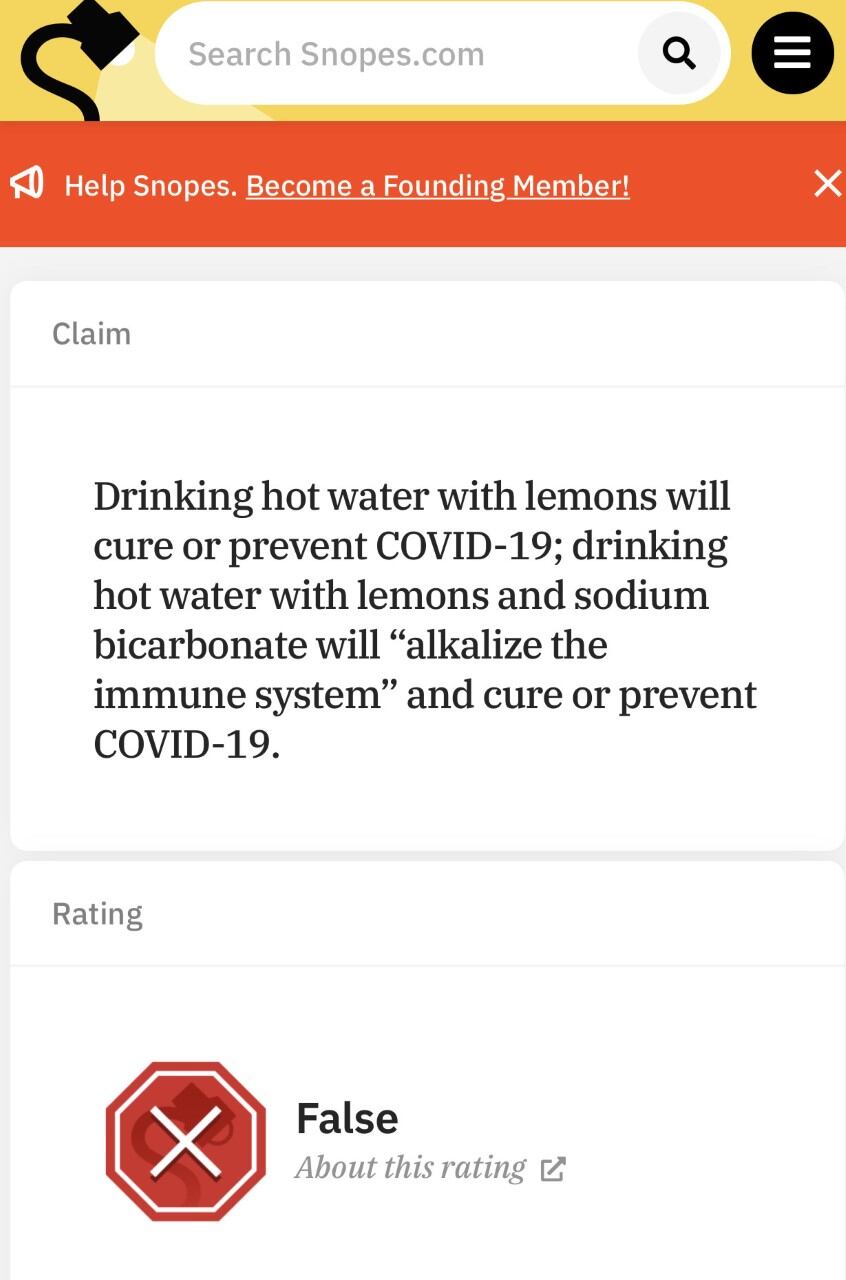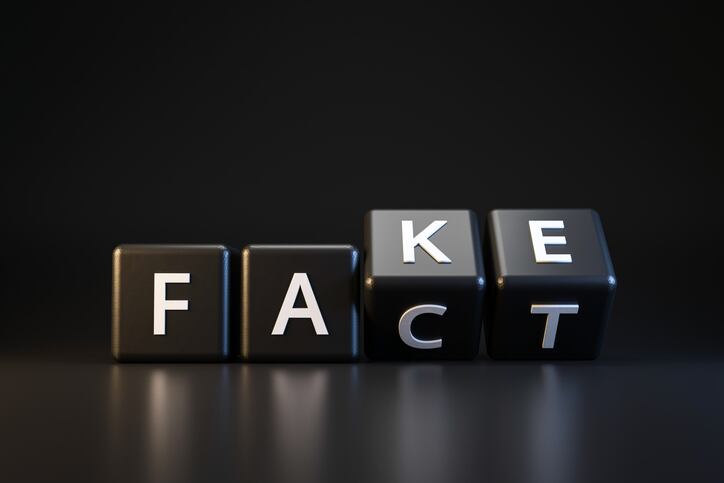Fake news is spreading just as fast as the virus itself. During a crisis such as this, facts have never been more crucial.
New York Attorney General Letitia James recently ordered radio host Alex Jones to cease and desist for selling and marketing products as a treatment or cure for the coronavirus. Jones was marketing and selling toothpaste, dietary supplements, creams, and several other products to prevent and cure the coronavirus.
Earlier this month, the FDA fired off several warning letters to warns firms hawking coronavirus supplements and treatments, including televangelist Jim Bakker, who received his own cease and desist order from James.

Some platforms are taking matters into their own hands. Twitter recently deleted a tweet from Rudy Giuliani, President Trump's personal lawyer. The tweet quoted conservative activist Charlie Kirk, who touted anti-malaria drug hydroxychloroquine as a cure for the coronavirus.
Access to the truth
As falsehoods run rampant with the peddling of conspiracy theories and fraudulent products claiming to prevent and cure the coronavirus, access to correct information has never been more important.
“There’s a lot of people who, frankly, are being opportunistic,” said Dr. Dan Gubler, PhD, a Caltech-trained natural product chemist who claims to have formulated more than 200 supplements.
“Now that this new need-state exists, this has come front and center on everybody’s radar. Ingredients that maybe have immune health properties but it’s not that strong, they’re trying to make this pivot to show that ingredient X is the end-all be-all for immune health. In reality, when you look at the peer-reviewed scientific literature, the immune health benefits, while they might be there, aren’t as strong as other ingredients that have had hundreds of papers published on them for immune health.”
Gubler told NutraIngredients-USA that in order to verify the validity of information, look at the source and the science. He said a red flag is information found on blogs and social media, often an opinion, mistaken for fact.
“It’s kind of like the telephone game, where you whisper into someone’s ear and the more generations, there goes the actual message and science can be lost. And that’s dangerous.”
In order to identify quality information, Gubler offered four steps in identifying reliable health advice.
“Number one, you need to look for information found in peer-reviewed scientific journals"
“When discerning the real from the fake, the real information is found in the peer-reviewed scientific literature. A peer reviewed journal means when you submit something for publication to a journal, the editor of the journal sends that article to other scientists in that field. So if it’s an article on COVID-19 or something like that, the article is sent to experts in that field. These people look at the research, they look at the method how it was done, and they deem if it’s good or not, if the science is good or not and if it should be published.”
While social media is great for memes and sharing at-home workouts, Gubler said it’s not the best source for news. “I mean I love social media, but a lot of times you have influencers pretending to be experts on things they read second-hand from something 30 minutes ago and they’re now disseminating it to their 10,000 followers or their 100,000 followers, pretending they’re an expert on something that they didn’t read in a scientific journal that they just got secondhand, you know fake information.”
“Number two, real scientific information is disseminated by experts in their respective area"
“When they share something, it’s always backed by references. So a scientist might take to a blog, or might take to a social media platform to disseminate information, and that’s good, but these people number one are credentialed in the area that they’re talking about and number two, if it’s their own research, they should show data to back that up, or if they’re quoting they have scientific references. Whereas fake information is disseminated from people without credentials.”
Avoid conflicts of interest
Gubler told us that the third thing to keep in mind is that real scientific information is promoted by people without an inherent conflict of interest. “People who are married to one ingredient or on the board of one ingredient or something like that, they can promote it kind of above and beyond the science or application sometimes. So you always have to look at conflict of interest disclosures when people are promoting information.”
Standardized ingredients
Lastly, Gubler pointed out that consistency is key. Standardized means that manufacturers ensure every batch is produced the same way, with the same ingredients and same concentration of active constituents.
“The other thing that is key to know is standardized ingredients. Where the ingredient is included in the formulation, where the bioactive compounds are standardized, so that each time that supplement is made, it has a certain level of bioactive compounds that are causing the efficacy in the formulation.”
Additionally Gubler said when seeking health advice specific to coronavirus, the best place to start with is the Centers for Disease Control.
“This is what they do. They eat, they drink, they breathe infectious disease, so we should be looking to these type of people.”




